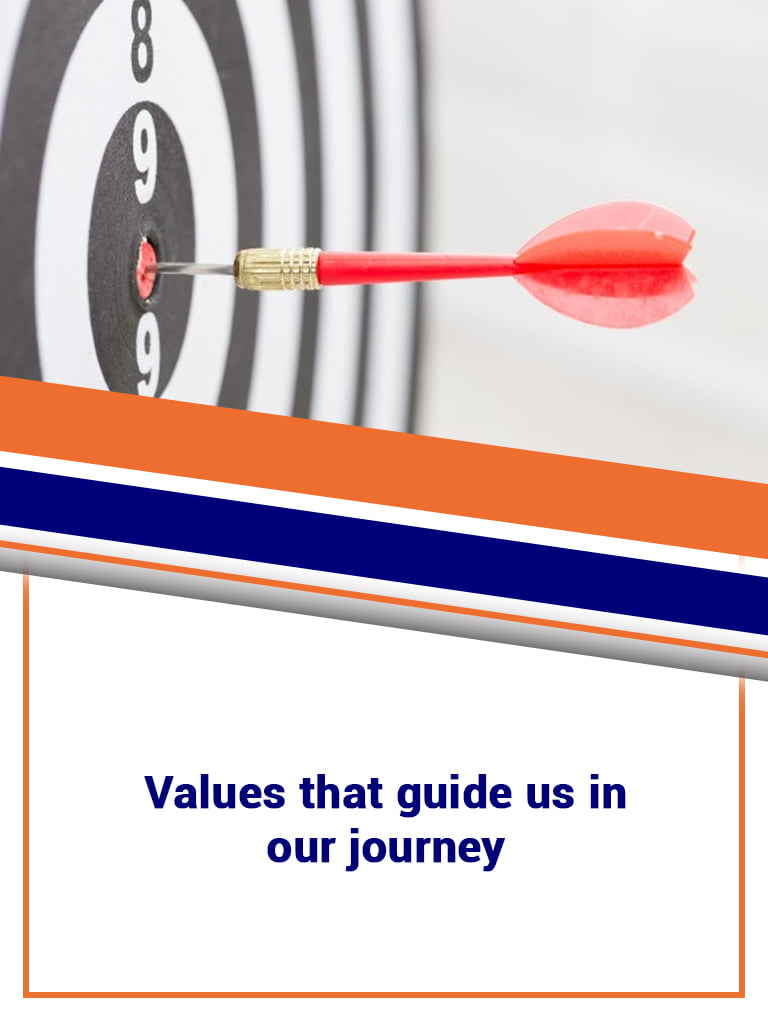The vision of the department sets the goal and the mission portrays the process of achieving the vision. The department vision is to be a premier department in correlation with the vision of the institution.
The Program Educational Objectives (PEOs) depicts the strength of the department in moulding students to become successful graduates by inculcating professionalism with concern to society and the environment. The PEOs are defined based on the institute and department vision and mission. The program outcomes are also taken as input for drafting the department’s PEOs. The ME department Vision, Mision, PEOs, PSOs and POs are
Vision
Mission
2. To imbibe research & innovative skills through industry collaborations and Centers of Excellence.
3. To inculcate team spirit, leadership qualities and promote self-learning to adapt to ever changing technologies.
Programme Educational Objectives (PEO's)
1. Demonstrate a strong foundation in mechanical engineering principles and practices to excel in their professional careers and /or pursue advanced studies in engineering.
2. Adapt professional ethics as an individual or in a team for multidisciplinary projects demonstrating creativity and leadership qualities.
3. Solve the problems of social relevance with concern for the environment through research, innovations and lifelong learning.
Program Outcomes (PO’s)
- PO1: Engineering Knowledge: Apply knowledge of mathematics, natural science, computing, engineering fundamentals and an engineering specialization as specified in WK1 to WK4 respectively to develop to the solution of complex engineering problems.
- PO2: Problem Analysis: Identify, formulate, review research literature and analyze complex engineering problems reaching substantiated conclusions with consideration for sustainable development. (WK1 to WK4)
- PO3: Design/Development of Solutions: Design creative solutions for complex engineering problems and design/develop systems/components/processes to meet identified needs with consideration for the public health and safety, whole-life cost, net zero carbon, culture, society and environment as required. (WK5)
- PO4: Conduct Investigations of Complex Problems: Conduct investigations of complex engineering problems using research-based knowledge including design of experiments, modelling, analysis & interpretation of data to provide valid conclusions. (WK8).
- PO5: Engineering Tool Usage: Create, select and apply appropriate techniques, resources and modern engineering & IT tools, including prediction and modelling recognizing their limitations to solve complex engineering problems. (WK2 and WK6)
- PO6: The Engineer and The World: Analyze and evaluate societal and environmental aspects while solving complex engineering problems for its impact on sustainability with reference to economy, health, safety, legal framework, culture and environment. (WK1, WK5, and WK7).
- PO7: Ethics: Apply ethical principles and commit to professional ethics, human values, diversity and inclusion; adhere to national & international laws. (WK9)
- PO8: Individual and Collaborative Team work: Function effectively as an individual, and as a member or leader in diverse/multi-disciplinary teams.
- PO9: Communication: Communicate effectively and inclusively within the engineering community and society at large, such as being able to comprehend and write effective reports and design documentation, make effective presentations considering cultural, language, and learning differences.
- PO10: Project Management and Finance: Apply knowledge and understanding of engineering management principles and economic decision-making and apply these to one’s own work, as a member and leader in a team, and to manage projects and in multidisciplinary environments.
- PO11: Life-Long Learning: Recognize the need for, and have the preparation and ability for i) independent and life-long learning ii) adaptability to new and emerging technologies and iii) critical thinking in the broadest context of technological change. (WK8)
Program specific Outcomes (PSO’s)
1. Analyze and create innovative solutions in the areas of Design and Thermal Engineering as per the industrial needs.
2. Apply the knowledge of IOT, Robotics and Artificial Intelligence tools to Design and develop solutions for evolving industry standards.



